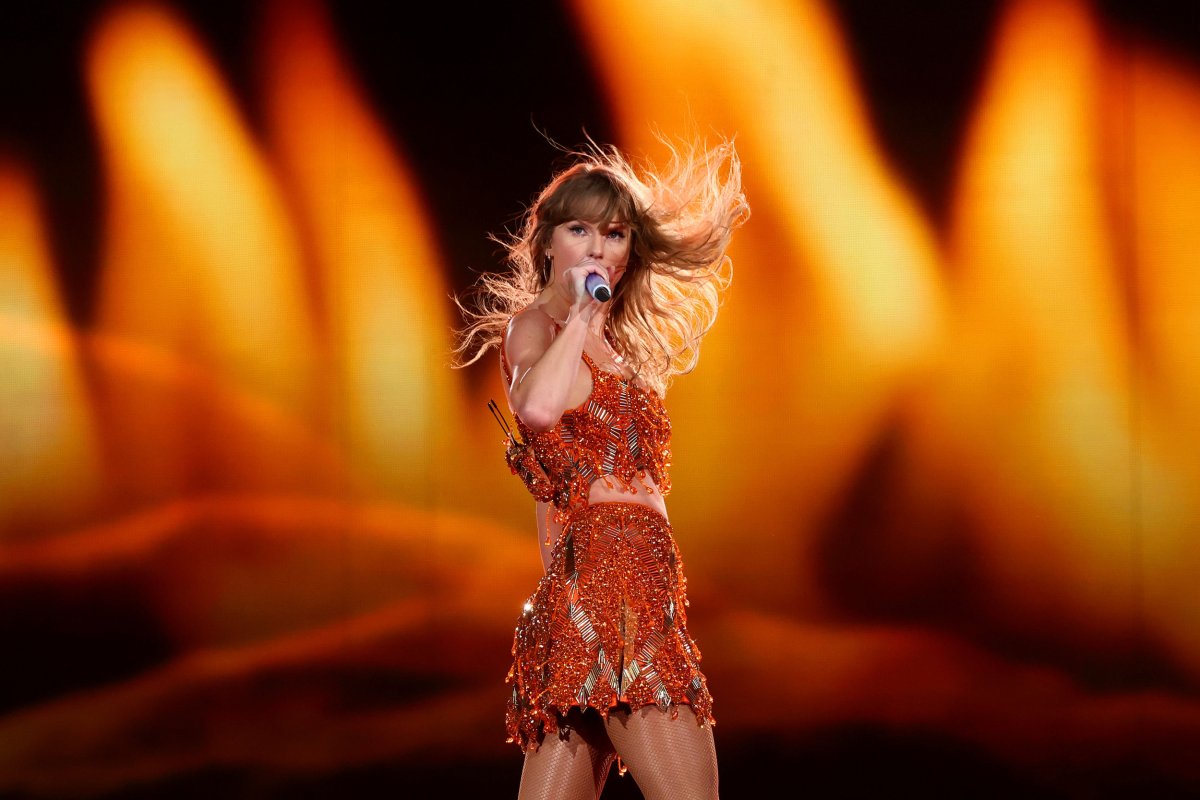If you have been living under a rock, you may have missed that Taylor Swift's 11th studio album, The Tortured Poet's Department, dropped last week, catapulting the pop star back to the top of the charts where she, as of Monday afternoon, claimed all 10 of the top spots on both Apple Music and Spotify's most-streamed songs. This monumental achievement is a testament to her enduring popularity and artistic evolution. Swift's latest offering, which boasts 16 tracks along with a surprise companion LP featuring 15 more songs, has garnered a wealth of attention, both positive and negative, from critics and fans alike.
While many have praised the album for its creativity and emotional depth, it has not been without its detractors. Critics have pointed out that Taylor has set a high standard for herself over the years, making it difficult to meet the expectations of her broad audience time and time again. This challenging dynamic often leads to a mixed bag of reviews, reflecting the complexities of her artistic journey.
As we explore the various critiques of Tortured Poets, it becomes clear that the conversation surrounding this album is as multifaceted as Swift's songwriting itself. Here are some of the harshest early critiques of Tortured Poets.

'Could use an editor'
Lindsay Zoladz, writing for the New York Times, began her review by praising both the album's title track and its opener, a duet with the rapper Post Malone. She described them as "potent reminders of how viscerally Swift can summon the flushed delirium of a doomed romance." However, Zoladz criticized the overall work, labeling it as "unrestrained, imprecise, and unnecessarily verbose," suggesting that the album felt bloated and didn't showcase Swift's best efforts.
According to Zoladz, "Great poets know how to condense, or at least how to edit," which implies that Swift's album may have suffered from a lack of refinement. This criticism raises questions about the balance between artistic expression and the need for concise storytelling in songwriting.
'A little tortured'
In a review by Pitchfork, writer Olivia Horn gave Tortured Poets a middling 6.6 rating out of 10, characterizing it as "unruly, unedited, and even a little tortured." Horn echoed Zoladz's sentiments, emphasizing that while some of Swift's songwriting shines, it can also appear to be in need of an editor. She defended the album's considerable length—31 tracks in total—arguing that it reflects the current music industry's trend where streaming services encourage artists to release more content.
This perspective highlights the modern challenges artists face in navigating commercial demands while trying to maintain their creative integrity. The length and size of Tortured Poets may be seen as a double-edged sword, appealing to some listeners while alienating others.
'A rare misstep'
At the British music site NME, Laura Molloy described Tortured Poets as "surprisingly flat, and at times, cringeworthy." Similar to Horn, she criticized Swift's songwriting, particularly noting that certain lyrics, such as those addressing the fame of fellow songwriter Charlie Puth, felt out of place. Interestingly, the New York Times review found that same lyric to be "strangely humanizing."
Despite these critiques, Molloy awarded the album three out of five stars, indicating that while there are flaws, there are redeeming qualities that many listeners might appreciate. This duality reflects the complexities inherent in Swift's work, where the line between brilliance and mediocrity can often blur.
'Quality-control issues'
Critic Spencer Kornhaber from The Atlantic labeled Tortured Poets as "okay," but noted that "Taylor Swift is not someone you’re supposed to feel okay about." Kornhaber pointed out the album's sprawling nature, asserting that much of it is a "dreary muddle" but also contains unexpected charms and moments of brilliance. This observation speaks to the unpredictable nature of Swift's songwriting, which can oscillate between the extraordinary and the ordinary.
Ultimately, the diverse range of reviews reflects Swift's ability to provoke strong reactions, whether positive or negative. Her work invites conversation and debate, a testament to her impact on the music industry and her fans.
'Strikes out looking'
Perhaps the most scathing review came from Paste Magazine, which described Tortured Poets as an album released "because I can, not because I should." This review, published anonymously due to previous threats against critics, criticized the quality of the songwriting, particularly the title track, which was labeled as "some of Swift's worst lyricism to date."
This harsh critique raises important questions about accountability in the music industry and the expectations placed on artists like Swift, who have achieved significant acclaim. The pressure to continually produce outstanding work can lead to a creative struggle, and this album seems to have brought those challenges to the forefront.
Despite the mixed reviews, Tortured Poets has also received a plethora of glowing feedback. Rolling Stone called it an "instant classic," while The Independent and The Times praised it as "irresistible" and a "five-star pleasure," respectively.
The numbers are undeniable as well: Spotify announced that the album was the first in the platform's history to exceed 300 million streams in a single day, breaking records that Swift herself previously set. This incredible achievement further solidifies her status as a leading figure in the music industry and highlights the ongoing evolution of her artistic journey.
Mothers And BPA: A Connection To Autism In Sons
Scrutiny On 'That '70s Show' Following Danny Masterson's Sentencing
A Letter From Willow Smith To Tupac Shakur Goes Viral Amid Will Smith's Oscar Incident


